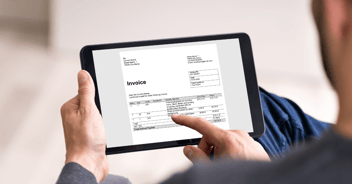How to Avoid the 8 Most Common Bookkeeping Mistakes and Improve Your Business Finances
Bookkeeping is a critical aspect of running any business, but it can be challenging to keep track of all financial transactions accurately. Many business owners make common bookkeeping mistakes that can lead to financial problems and even legal troubles. In this how-to guide, we will discuss the 8 most common bookkeeping mistakes that business owners make and provide practical tips on how to avoid them.
By following the advice in this guide, you can improve your bookkeeping practices and avoid costly errors. Whether you are a sole proprietor or a corporation, having accurate and up-to-date financial records is crucial to the success of your business.
Improper or Poor Record Keeping
Poor record-keeping is a common issue for many businesses. To avoid this mistake, make sure to have a proper filing system and record-keeping process. Keep track of all receipts and expenses, and be aware of tax write-offs that can save you money. Having accurate records can also help in the event of a CRA audit.
Using the Business Bank Account as a Personal Bank Account
Many business owners make the mistake of using a business bank account as a personal account. This can cause issues with shareholder loans and taxes. To avoid this mistake, make sure to keep personal and business finances separate, and avoid using the business account for personal expenses.
Not Tracking Cash Flow
Tracking cash flow is essential to effectively manage your business finances. Make sure to set clear salary or dividend expectations and reconcile your bank accounts every month. This can minimize errors and potential financial issues.
Neglecting Sales & Payroll Tax
Failing to create a GST account or source deduction account can lead to significant fines and penalties. Make sure to have these accounts set up from the beginning and keep accurate records of sales and payroll taxes.
Poor Communication
Effective communication with your bookkeeper and employees is essential to keeping accurate financial records. Keep your Certified Professional Bookkeeper involved and integrated with your business operations to ensure strong financial statements.
Not Tracking Reimbursable Expenses
Many business owners overlook reimbursable expenses, leading to lost money and tax deductions. Keep track of all reimbursable expenses and ensure they are properly accounted for in your financial records.
Improper Categorizing of Expenses
Accurately tracking income and expenses in the correct categories ensures proper measurement of profitability. If you or someone you hired does not have bookkeeping knowledge, consider hiring a Certified Professional Bookkeeper to avoid this mistake.
Wasting Time
Many business owners try to handle bookkeeping themselves, leading to wasted time and potential mistakes. Hire a Certified Professional Bookkeeper to handle your bookkeeping, allowing you to focus on growing your business and putting your time where it is needed.
In conclusion, proper bookkeeping is essential to the success of your business. By avoiding these 8 common bookkeeping mistakes, you can improve your business finances and ensure accurate financial records. Remember to keep your personal and business finances separate, communicate effectively with your bookkeeper and employees, and consider hiring a Certified Professional Bookkeeper to handle your bookkeeping needs.

Article by Jennifer Walsh, CPB
Jennifer Walsh has been a bookkeeper for over 20 years and she's loved every minute of it. She loves helping business owners reach their financial goals so they can live the life they love, without having to worry about the numbers.





